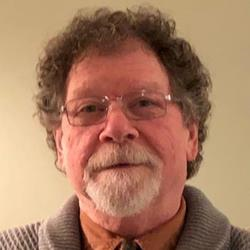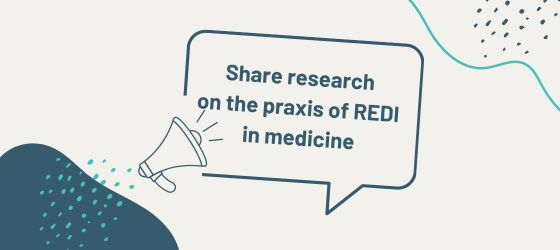Deepen your understanding of Justice, Equity, Decolonization, Inclusion and Indigenization (JEDII) — and how to apply these principles in your own work — with this newly-curated page of courses from UBC and beyond. Designed to help you build the knowledge and skills needed for more equitable and inclusive practices, consider taking a course with your team or unit, reflect on your learning together and explore ways to embed it into your everyday practice.

Indigenization and Decolonization
- Weaving Relations (UBC Faculty of Applied Science and the Faculty of Land and Food Systems)
Weaving Relations explores Indigenous histories, people, and contexts, as well as settler colonialism in Canada, through the lens of Indigenous-Canadian relationships. The course considers how we got to where we are now, and how we can build a better future together. - Indigenous Learning Pathways (ILP) program (CTLT Indigenous Initiatives)
A multi-course suite supporting respectful engagement with Indigenous histories and perspectives. It includes:- Beginning Your Learning Journey – introduces learners to cultural principles guiding the program, how to best use the courses based on your own role and learning areas, and the community involved in creating ILP as well as grounding the learning journey ahead in our place on unceded xʷməθkʷəy̓əm (Musqueam) land.
- Engaging with Indigenous Knowledges and Perspectives – supports learners to reflect on their own professional development needs, orients them to the various types of Indigenous-focused resources available at UBC and tips on how to engage with Indigenous resources effectively and respectfully.
- Truth Before Reconciliation – explores the impacts of colonization in post-secondary settings and identifies tools and resources to build foundational awareness and necessary truths and collective healing.
- Land Acknowledgements at UBC – provides foundational knowledge about what land acknowledgements are, why we do them, and the basic elements of what makes a meaningful, accountable acknowledgment.
Indigenization & Decolonization in Healthcare
- Anti-Racism Indigenous Cultural Safety Training (Sany’as PHSA)
- Anti-Indigenous Racism in Healthcare (Athabasca University)
- Indigenous Health and Wellness, Advocacy, and Allyship Certificate (Athabasca University)
EDI Foundations
- Grounding Anti-Oppression (UBC Faculty of Applied Science and the Faculty of Land and Food Systems)
Grounding Anti-Oppression is designed to delve into the intricate dynamics of power and oppression at individual, interpersonal, and institutional levels. The course empowers participants to cultivate a robust understanding of anti-oppression principles and strategies, and facilitates critical reflections on personal roles and experiences within systems of power and oppression. - Fairness 101 (Ombudsperson British Columbia)
This course provides employees of public bodies in BC with an introduction to fairness in the public sector. It provides an overview of administrative fairness and teaches participants how to recognize and apply the key elements of fairness in their everyday role.
EDI & Admission
- Inclusive & Equitable Decision-Making in Undergraduate Medical Education Selection (REDI)
This module is a series of activities for participants in selection processes for Undergraduate Medical Education. Its goals are to raise awareness of cognitive biases, explore ways they can influence decision-making, and provide strategies to mitigate them for more inclusive and equitable selection decision-making. - Inclusive & Equitable Decision-Making in Postgraduate Medical Education Selection (REDI)
This module is a series of activities for participants in selection processes for Postgraduate Medical Education. Its goals are to raise awareness of cognitive biases, explore ways they can influence decision-making, and provide strategies to mitigate them for more inclusive and equitable selection decision-making.
EDI, Teaching & Learning
- Inclusivity in the Learning Environment (Faculty Development)
- Inclusive Teaching (Equity & Inclusion Office)
EDI & Research
- EDI in Research (VP Research & Innovation)
EDI & Hiring
- Hiring Equity (Equity & Inclusion Office)
EDI & Healthcare
- Equity in Healthcare Certificate (PHSA, SFU & UBC CPD)
This program includes the following 6 courses as part of 3 microcertificates:- Equity Essentials in Healthcare Microcertificate:
- Navigating Healthcare Inequities Microcertificate:
- Building Equity-Centred Healthcare Microcertificate:
Accessibility
- Disability at Work 101 (UBC Centre for Workplace Accessibility)
This course is a resource for all UBC employees who’d like to deepen their disability inclusion literacy. It will support you in strengthening your understanding about disability and identifying different strategies to promote disability inclusion in the workplace.
Conflict Engagement
- Conflict Engagement Pre-Workshop (REDI)
- Conflict Engagement: An Introduction (UBC Conflict Theatre)
- Below the Surface – Foundations of Conflict Engagement (Waterline Co-op, course formerly known as Co-Resolve Deep Democracy)
- Conscious Use of Power (Inner Activist)
Gender and Sexuality
- Positive Space: Foundations (UBC Equity & Inclusion Office)
- Preventing and Responding to Sexual Misconduct (UBC Investigations Office)
























